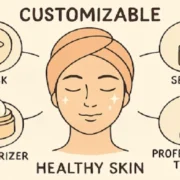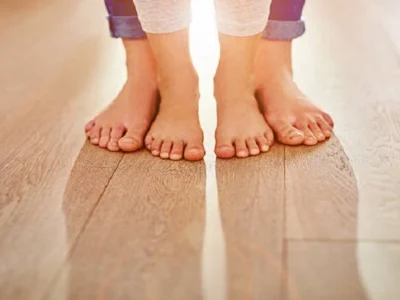Construction workers are the ones who build our areas, cities, and infrastructure. It takes mental attention, physical strength, and endurance to do their job. Despite the long hours, difficult tasks, and high-risk environment of building sites, rest and recovery are often not given enough attention. In contrast, for construction workers, getting enough rest is not just a break; it’s an important part of their long-term health, safety, and success on the job. Encouragement to focus on recovery has benefits that go beyond the individual’s health. These benefits affect productivity, happiness at work, and even project timelines as a whole.
Construction is a very physically demanding job, skipping recovery can cause performance to slowly decline, increase the risk of injury, and make recovery times longer when accidents do happen. In a job where being physically and mentally ready is important for safety and success, stressing rest helps workers stay alert, keep their strength, and keep their energy levels high.
Physical Recovery: Recharging the Body
Construction work is hard because you have to lift big things, do the same things over and over, and stand or work in positions that are hard on your body for long periods of time. This constant strain can make muscles tired, joints stiff, and even cause long-term problems like tendinitis or chronic back pain. Recovery gives the body a chance to heal, lower inflammation, and get its energy back. It’s just as important to take breaks, stay hydrated, and eat well as it is to work out. This gives muscles and joints a chance to heal and rebuild.
For construction workers, staying physically strong means being able to work at full potential without getting hurt or tired. Stretching, staying hydrated, and getting enough sleep are all good ways to heal physically. They protect the body from damage and lower the risk of long-term injuries that could make it impossible for a worker to keep working in the field.
Mental Rejuvenation: Staying Sharp and Focused
There are many risks on construction sites, so workers need to be constantly aware and be able to make quick decisions. Mental fatigue at work can be just as dangerous as physical fatigue because it can make people lose focus or respond more slowly. Resetting your mind, focusing, and making better decisions on the job are all helped by rest and healing. If workers get enough rest, they’ll likely stay awake, which makes it easier for them to spot risks and follow safety rules.
To help workers recharge their minds, construction companies can offer breaks, make schedules more balanced, and make sure there is time off between jobs. Understanding that mental rest is just as important as physical rest can have a big effect on job safety and cut down on accidents that happen because of forgetfulness or exhaustion.
Preventing Injury Through Proper Recovery
When construction workers are tired but don’t get enough rest, they are more likely to get hurt or have an accident, from minor strains to major ones. Muscles that have been overworked are more likely to give out under stress, and minds that are tired may forget to take important safety steps. Recovery time gives both the body and the mind a chance to heal, so workers can safely and effectively do the physically demanding parts of their jobs.
In the unfortunate event that an injury does occur, seeking legal help for construction site injuries in Denver can be invaluable. A helpful legal guide can help workers understand their rights and the ways they can get better, especially when they get hurt on the job because of unsafe conditions or long hours. Getting the right help and recovering properly can make a big difference in the healing process.
Boosting Immune Health with Rest
People who work in construction are exposed to changing weather, dust, and hard physical work that can weaken the immune system. When the body is overworked over time, the immune system can weaken, making people more likely to get sick. Getting enough rest makes the immune system stronger, which helps the body deal with stress better, cut down on sick days, and become more resilient at work overall.
Taking breaks between jobs or projects, even if it’s just for the weekend, can make it much easier for a worker to stay healthy. By encouraging a culture that values rest, building companies can support teams that are healthier, more resilient, and less likely to have to miss work because they are sick.
The Role of Employers in Supporting Recovery
Construction firms are very important for creating an atmosphere that values recovery. To help workers stay healthy and perform at their best, employers can set up balanced schedules, encourage frequent breaks, and even provide tools like wellness programs or access to physical therapy. When businesses understand that rest makes workers healthier and more productive, they help make the workplace safer and more environmentally friendly.
Putting money into practices that help with recovery is good for each worker, and it also lowers turnover, improves team happiness, and lowers the number of accidents. Putting recovery first shows that you care about your long-term health, which improves the company’s image and output.
Making Active Recovery a Part of Everyday Activities
Active recovery includes low-impact exercises like light yoga, stretching, and walking that keep the body moving while still giving it time to heal. These gentle movements can help building workers feel less sore and stiff in their muscles, improve their circulation, and keep their joints flexible. Making active recovery a daily habit, like stretching before shifts or going for a short walk during breaks, can help avoid injuries caused by doing the same things over and over again and ease the stress of physically demanding work.
When workers make active recovery a regular part of their schedule, they often feel less pain, have better mobility, and are more ready for the day ahead. Construction workers can keep their health in good shape while juggling the demands of their jobs by using this easy but effective way to recover.
Improving Sleep Quality for Better Recovery
Good sleep is one of the best ways for building workers to recover. Deep, restful sleep helps muscles heal, clears the mind, and improves happiness, so workers can wake up feeling ready to go. Not getting enough sleep, on the other hand, can slow you down and make you less motivated, which can make accidents or stress more likely. People who make getting enough sleep a priority at work recover physically faster, are more alert, and feel better generally.
Businesses can help their employees sleep better by not putting them on shifts that mess up their normal sleep cycles and by encouraging a healthy lifestyle at work. When workers get the rest they need, happiness and productivity go up for everyone on the team.
FintechZoom Apple Stock: Analysis Trends and Market Predictions for 2024










Comments